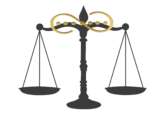 Is your love as deep as your pocket? Part III
Is your love as deep as your pocket? Part III
Parts 1 and 2 covered what is a family home. I mentioned two scenarios and outlined some of the key circumstances for scenario 2. As a recap, in scenario 2, the 2nd wife bought a property in 2003 for $17,000,000.00, and spent a further $13,000,000.00 on renovations which were completed before 2008. The property was bought in 2003 before getting married.
The husband admitted that he did not contribute any at all to those costs. The husband insisted that the 2nd wife bought the property because they both agreed it was a good idea to do so, and would make it their family home when he divorced his 1st wife whom he married in 1984.
The husband 1st moved into the property in 2008 while still married to his 1st wife. The 2nd wife denied having any agreement with the husband to purchase the property, and said she bought the property in 2003 to provide a home for herself, her mother, and the child born in 1999, whose father is the husband. She also said, the husband only moved in after her mother passed in 2007. Last week’s article has much more details on the couple’s history.
Basis #1: She owned the house at the time of marriage (Cont’d)
Owning the house before marriage is usually not enough on its own and usually is a starting point. The Court in trying to be just, and reasonable looks at the entire circumstances.
Did he move in and become ‘the man of the house’?
Well, the husband said he “essentially ran the house” because of the 2nd wife’s busy life. He also claimed to do whatever needed to be done by a man. The husband alleged that he and the 2nd wife agreed, that she would pay all the major expenses including the mortgage and their child’s tuition fees. He claimed to pay all other bills such as household expenses, light, water, cable, telephone, gardener’s salary, non-tuition expenses for their child, maintenance and upkeep of the family home, pool servicing fees, and other unexpected repairs. Did the evidence support this?
You might recall from the second article that, at trial, the husband admitted he did not know about the mortgage, he also said that the appellant had bought the house cash with a cheque. This raised the issue of how could there have been an agreement with him about a mortgage he did not know about.
The husband was unable to state, or provide proof of any expenses he paid on behalf of their child. There was no evidence that he spent any extra time caring for their child, or that he became an unemployed stay at home father. Bear in mind, there was a gardener and a helper. He admitted at trial that the wife paid the grocery bill, and water bill the majority of the time.
The 2nd wife indicated that the husband did not pay bills consistently, especially when his business with his 1st wife had financial troubles. It was the 2nd wife’s company that bailed that business out with loans. The husband provided receipts for paid bills, but only 8 were clear, and they had 2013 dates.
Did he make improvements to the property?
In 2007 before moving into the property, the husband paved an area to the back of the property to facilitate a political function. He relied on his sister to convince the 2nd wife to allow him to do it. The husband admitted that this improvement was done voluntarily and for his own benefit.
For his birthday party in 2010, the husband paved the yard to the kitchen and back patio. He admitted this too was voluntary and for his benefit so he paid for most of it. These two voluntary actions raise another important legal issue.
We have now identified two key legal issues which determined the weight the Court could give to certain aspects of the relationship. The next article will continue to explore the couple’s relationship and the legal issues. If you can, please keep this week’s article.
Until next time, stay safe.
Disclaimer by the author: Nothing in this article is to be taken as legal advice. You should consult an attorney regarding your specific case. All liability with respect to actions taken or not taken based on the contents of this article are hereby expressly disclaimed.
